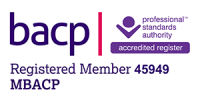Children as young as 10 send explicit photos of themselves online
Schools around the UK have known for some time that many children and adolescents text inappropriate images of themselves from their mobile phones, or upload intimate images of themselves online and email these to other people. The practice of ‘sexting’ is becoming more common as a generation of children grow up entirely comfortable recording the details of their personal lives online. Sexting is defined as self-generated explicit images sent to other people over the internet.
A recent University of Plymouth survey of 500 13-18 year olds revealed that 38% of those questioned had received an explicit image over the internet. 39% admitting sending explicit images of themselves. And interestingly, 58% were not aware that images they had sent were distributed to more than the intended recipient.
Children often don’t realise the consequences of sending intimate images to trusted friends. Once an image has been uploaded to the internet, it is almost impossible to remove. Once sent, control over an image is irreparably lost.
Behaviour blurs the lines of sexual exploitation and the laws around the distribution of indecent images
A police force in Nottingham has warned children who sext that they could face prosecution. They cited a case where a teenage girl sent a topless image of herself to her boyfriend. Both the girl and the boy were investigated for sending indecent images of children. The boy, who had forwarded the image to several friends, received a caution. The experience was distressing for both families involved.
In a letter to Nottingham school officials, Detective Inspector Martin Hill wrote
‘If a person is aged over 10 years and distributes (or shares, even with friends) an indecent image, then they can be arrested and charged… for this offence. If they are found guilty, they must then register as a sex offender.‘
For some people, the practice of sexting raises issues beyond the legal implications. The self-sexualisation of children may have greater consequences. Parents Protect, a UK charity aimed at helping parents protect children from sexual abuse, has created a comprehensive information pack for parents concerned about sexting.


